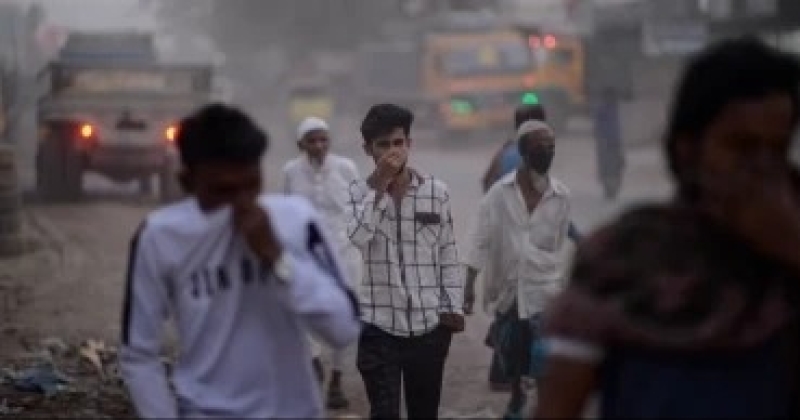- Bangladesh Bank Buys $115 Million to Support Forex Market |
- Tarique Rahman, Daughter Zaima Added to Voter List |
- NCP and LDP Join Jamaat-Led Eight-Party Alliance |
- Tarique Rahman’s gratitude to people for welcoming him on his return |
- Attorney General Md Asaduzzaman resigns to contest election |
Dhaka residents struggling with ‘unhealthy’ air quality

Unhealthy air quality make resident of Dhaka suffer on Thursday 30 October 2025. UNB_11zon
Dhaka, Oct 30 -Dhaka, the overcrowded capital city of Bangladesh, has ranked sixth on the list of cities with the worst air quality with an AQI score of 157 at 9:30am this morning (October 30, 2025).
Today Dhaka’s air was classified as ‘unhealthy,’ referring to a health threat, according to the AQI index. For the past few days, Dhaka continued to experience the unhealthy air.
When the AQI value for particle pollution is between 50 and 100, air quality is considered ‘moderate’, usually sensitive individuals should consider limiting prolonged outdoor exertion, between 101 and 150, air quality is considered ‘unhealthy for sensitive groups’, between 150 and 200 is ‘unhealthy’, between 201 and 300 is said to be 'very unhealthy', while a reading of 301+ is considered 'hazardous', posing serious health risks to residents.
Pakistan’s Lahore, India’s Delhi and China’s Beijing cities respectively occupied the first, second and third spots on the list, with AQI scores of 571, 471, and 202 respectively.
The AQI, an index for reporting daily air quality, informs people how clean or polluted the air of a certain city is and what associated health effects might be a concern for them.
The AQI in Bangladesh is based on five pollutants: particulate matter (PM10 and PM2.5), NO2, CO, SO2, and ozone.
Dhaka has long been grappling with air pollution issues. Its air quality usually turns unhealthy in winter and improves during the monsoon.
As per World Health Organization (WHO), air pollution kills an estimated seven million people worldwide every year, mainly due to increased mortality from stroke, heart disease, chronic obstructive pulmonary disease, lung cancer, and acute respiratory infections. - UNB

